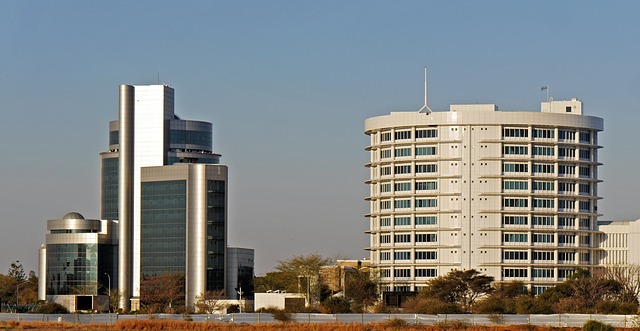By Tim Lambert
Early Botswana
The earliest inhabitants of Botswana were Stone Age hunter-gatherers. some hunters carried on their simple way of life until the 20th century. However in the years before Christ was born some converted to a pastoral way of life. Then after 500 AD Bantu-speaking, people migrated to Botswana. They herded cattle and they brought iron tools and weapons.
After 1000 AD the pastoralists formed organized kingdoms. Then in the 13th century, a powerful chiefdom arose with its capital at Mapungubwe Hill. However, they were eclipsed by Great Zimbabwe, which took over many chiefdoms in Eastern Botswana.
In the early 19th century Botswana was plunged into a series of wars known as the Difaqane. As a result, there were great migrations of refugees. However, in the 1840s order returned.
From the 1820s Christian missionaries arrived in Botswana. Traders seeking ivory also spread the new religion. Then in 1841, David Livingstone went to Kuruman.
However, there was a new threat – the Boers.
Modern Botswana
The Boers were Dutch-speaking farmers from South Africa. In 1836 they trekked north to form the Transvaal. In 1884 the Germans took Namibia and the British feared they would link up with the Boers in the Transvaal. To forestall them in 1885 the British declared Botswana a protectorate. It was called Bechuanaland. However, the British made very little attempt to develop Bechuanaland and they left it largely alone.
In 1948 Seretse Khama, Prince of the Bangwato married an Englishwoman called Ruth Williams. The South Africans objected to cross-racial marriage. To appease the South Africans the British invited Seretse to London then barred him from re-entering his own country! He did not return to Botswana till 1956 and was forced to renounce his claim to the throne.
However across Africa in the 1950s there was an unstoppable move towards independence. In 1960 the Bechuanaland People’s Party was formed. In 1961 Bechuanaland was granted its own legislative council. Then in 1962 Seretse Khama founded the Bechuanaland Democratic Party and in 1963 work began on building a capital at Gaborone. In 1965 Bechuanaland was granted internal self-government. Finally, on 30 September 1966, the Republic of Botswana became independent.
In the late 20th century the economy of Botswana grew rapidly. Diamonds were discovered in 1967 at Orapa. In 1977 Letlhakane mine opened and in 1982 Jwaneng mine opened. Tourism is also an important industry in Botswana. Manufacturing industry is also growing in Botswana.
Today Botswana is developing rapidly. In 2024 the population of Botswana was 2.5 million.

Last Revised 2025